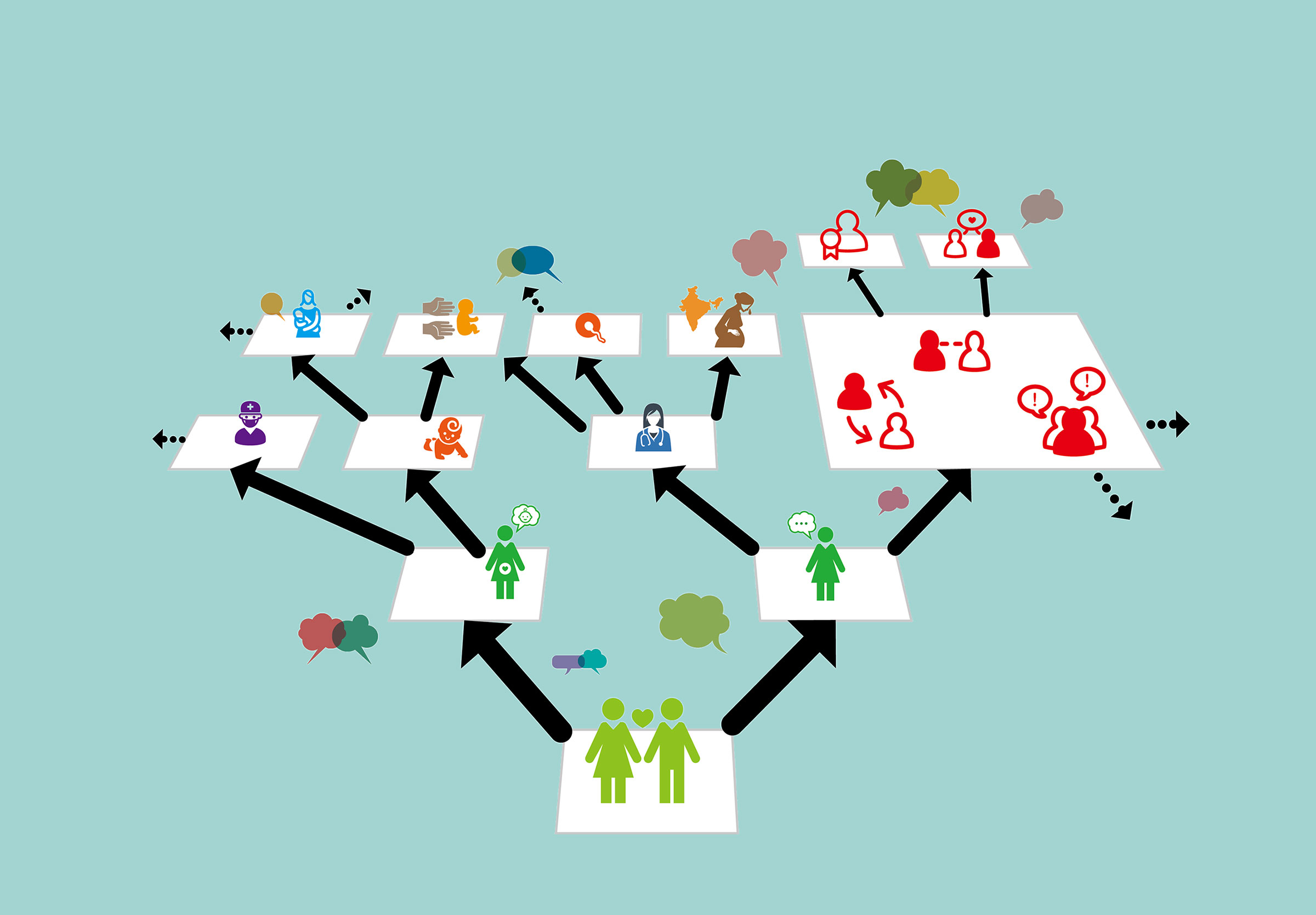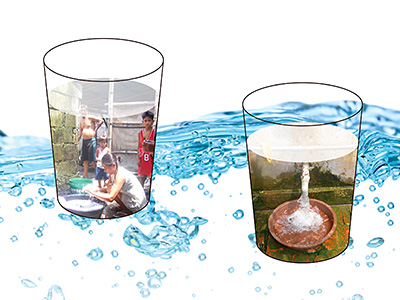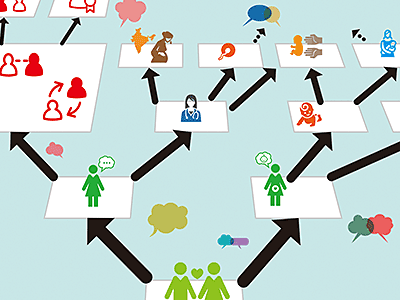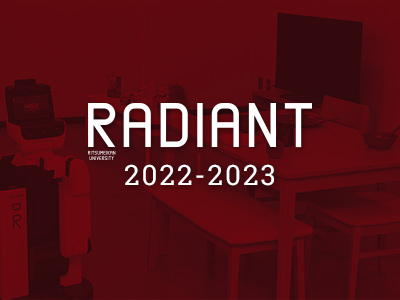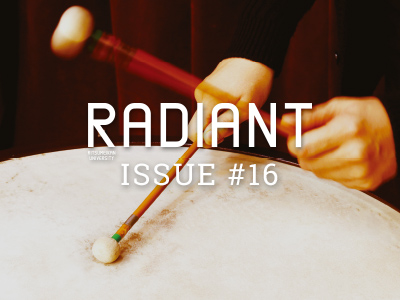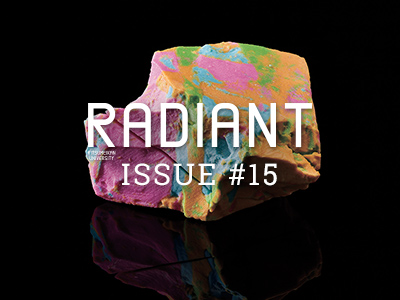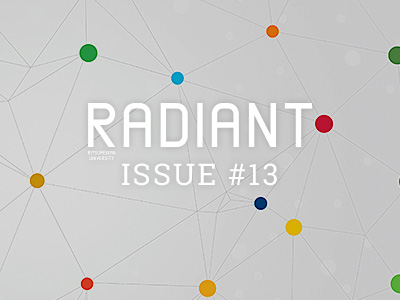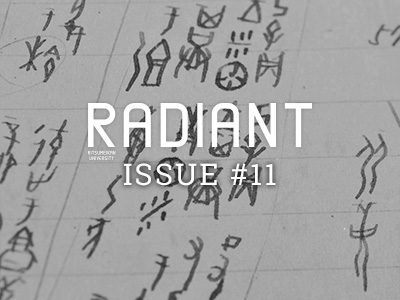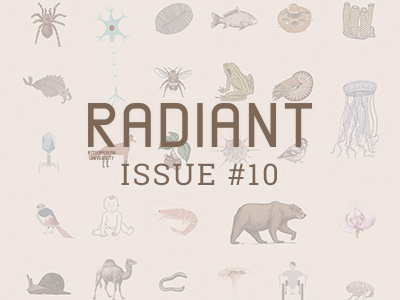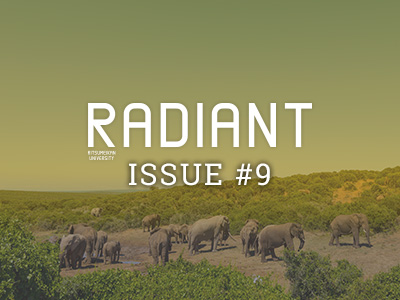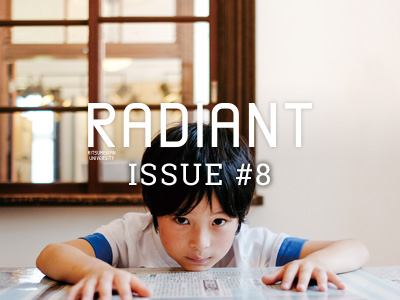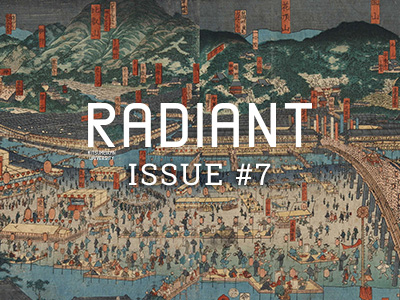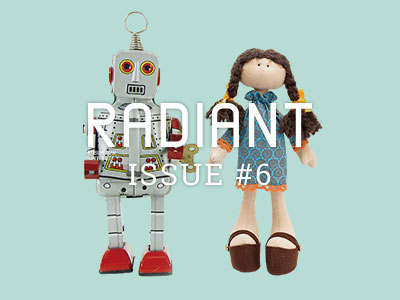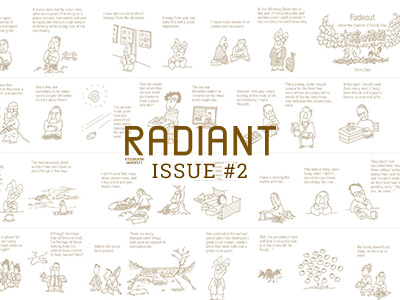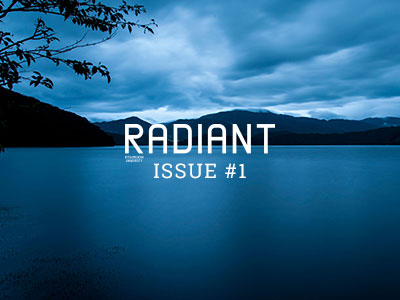STORY #6
The global story
of reproduction
- India
- Japan
- Korea
- Thailand
Yuko Yasuda
Associate Professor,
College of Comprehensive Psychology
Is having a baby a source of happiness for a woman?
Stories of setbacks and comebacks for women who cannot bear children
"To marry and have a baby. This is happiness for women."
Today, there are ever diversifying lifestyle choices, and the tendencies for people to marry later and remain single longer, and to decrease in the number of children are recognized.
Even in this situation, the values related to women's feelings of happiness as stated above are still somewhat absolute and firmly established. However, having a baby is not the only kind of happiness, but it is just one form of happiness. In reality, some women fail to achieve the happiness they always assumed that they would have. Many of the women facing problems due to infertility have realized that they could not bear children while they always assumed that they would after marriage.
Suddenly, they suffer despair, feeling that their vision of a "happy life" has come down with a crash.
Yuko Yasuda strives to understand their process of recovery from this despair and the reconstruction of their lives from the viewpoint of "life-span development."
What characterizes Yasuda's study is the narrative approach where she casts a unique light, on each woman's life in order to pursue distinctive and diverse stories.
Yasuda's research also includes a study that transcribes chronological flow charts of the stories of women who could not bear children, but then adopted children. The study is based on a qualitative methodology called Trajectory Equifinality Model (TEM). This method features the illustration of multiple tracks, along with less-visible cultural and social aspects, towards a certain goal, based upon the assumption that human development and life routes are inherently diverse. It reflects the stories of the setbacks and comebacks that anyone can experience in life.
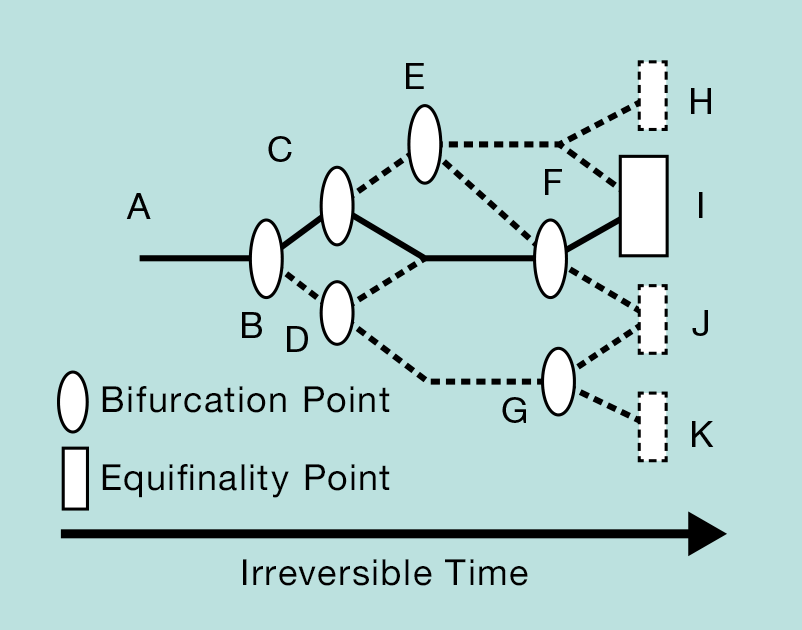
Basic figure of TEM: Trajectory Equifinality Model (TEM) is a methodology of qualitative study that depicts the diversity and multiplicity of routes towards a certain state, choice or action (Equifinality Point: EFP). Dependence upon a system methodology and emphasis on irreversible time are features of the theory
First, Yasuda lets the subjects talk about their own experiences with infertility. Listening to the stories, Yasuda carefully identifies what the speakers have chosen at the bifurcation points in their lives and the other possible choices they could have made and puts them into a figure with TEM. If a couple suffers from a fertility problem after marriage, they worry about whether or not to start infertility treatments. Faced with the reality of infertility, they decide to choose either to give up on having children and reconsider their lives without children, adopt a child or consider other options. Further, Yasuda acknowledges their actions and choices while at the same time sympathizing with their emotions, that is, what the infertile women did at different times and how they felt emotionally about the consequences.
"'Narrating is also an action that can reposition an experience of loss, such as infertility, into the speakers own concept.
”Narrating gives these women the chance to discover a new meaning from their own once-negative experiences, and the new meaning encourages them to shape their own futures. Each life story simply touches me," Yasuda says.
Infertility is perceived differently by those who experience it and respond to it in different ways. “Pieces of the truth about life fill each story," Yasuda considers. The narrated stories and the action of narrating not only help to heal these women's hearts, but they move many listeners with their strong message that anyone can try again in life. "What attracts me to this qualitative study is such inseparable link between human service and academic study," Yasuda says.
Today, reproductive choices and actions cannot be considered without understanding the cultural and social backgrounds involved and the influence of advancing Assisted Reproductive Technologies (ART). In particular, the development and spread of ART is complicating and diversifying the choices for women of reproduction more and more. "The development of new treatment technologies and medical interventions for reproduction, including sperm and egg donation, create a different reality for lives that are usually created from two people and cause conflicts related to the addition of third parties. In South Korea, the donation of eggs had become a matter of public concern. In India and Thailand, surrogacy agencies had been established for the reproduction business. After the industry became regulated, it is said that there has been an increased risk of problems from illegal surrogacy."
Since these changes involve a wide variety of issues, including economic disparity, poverty and other social problems, denying their importance unilaterally indicates a lack of perspective and understanding. Considering the fact that buyers of surrogacy services are mainly people from the wealthy classes in developed countries, Japanese people should not ignore this issue. Yasuda believes that "reproduction can connect the lives of Japanese women with the lives of women in other Asian countries. To understand the stories of reproduction, a couple, a family and a life sufficiently, it's necessary to increase the knowledge of reproduction from global perspective."
Not limited to infertility, everyone lives their own bittersweet life experiences with mixed feelings. Seeing each one of the lives from the narrator perspective in order to pursue the truth of "life" is what Yasuda has had a lifelong interest in.
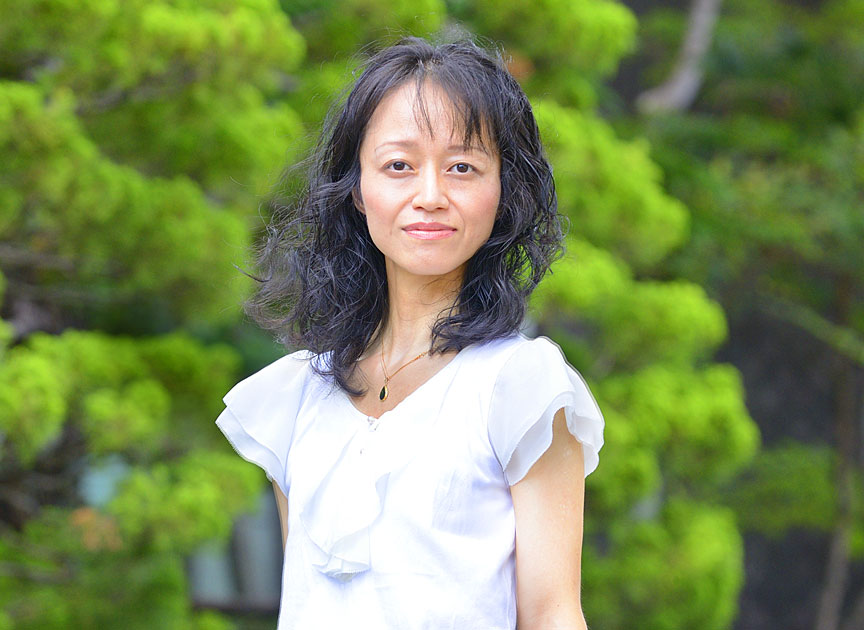
Yuko Yasuda
Associate Professor,
College of Comprehensive Psychology
Subject of Research: Qualitative study of crises and recovery in life originating from reproduction
Research Keywords: Clinical psychology, life-span developmental psychology, qualitative psychology
